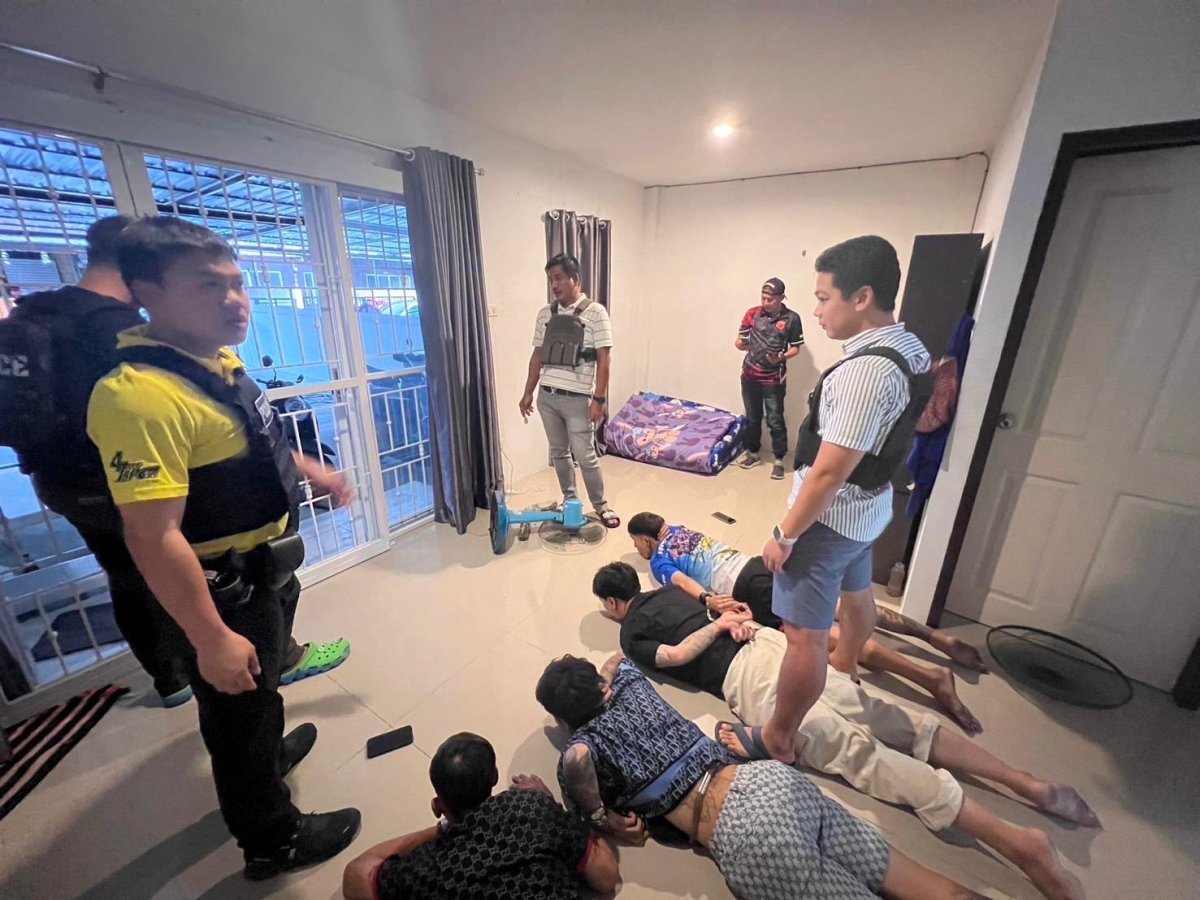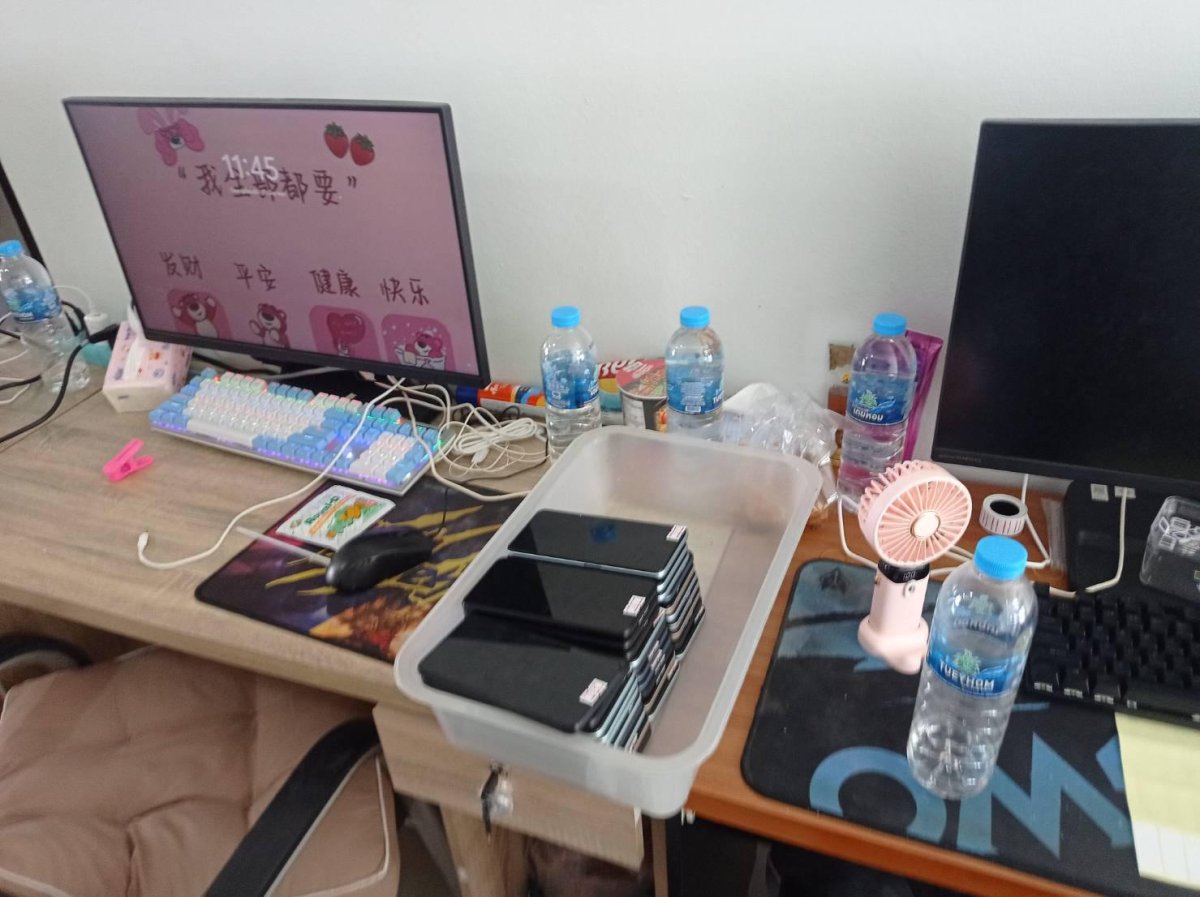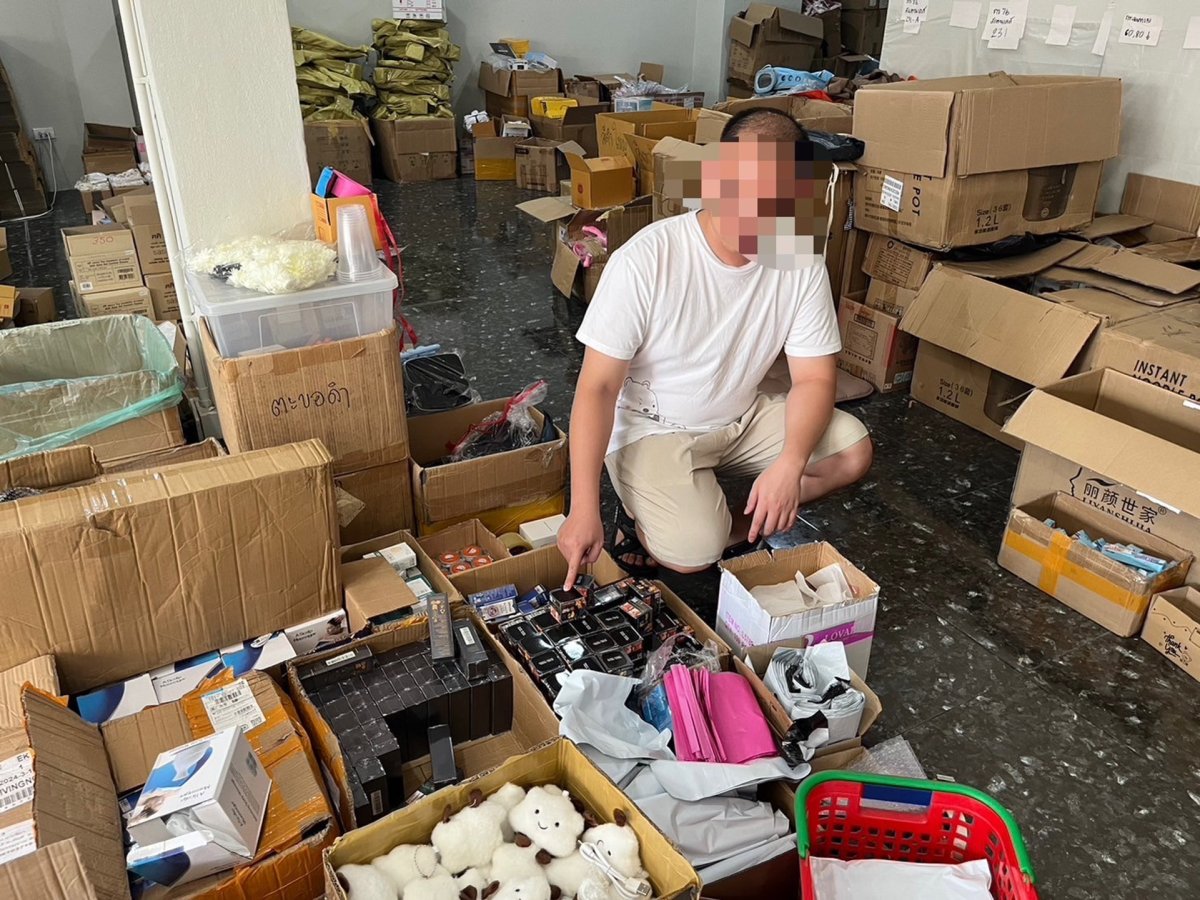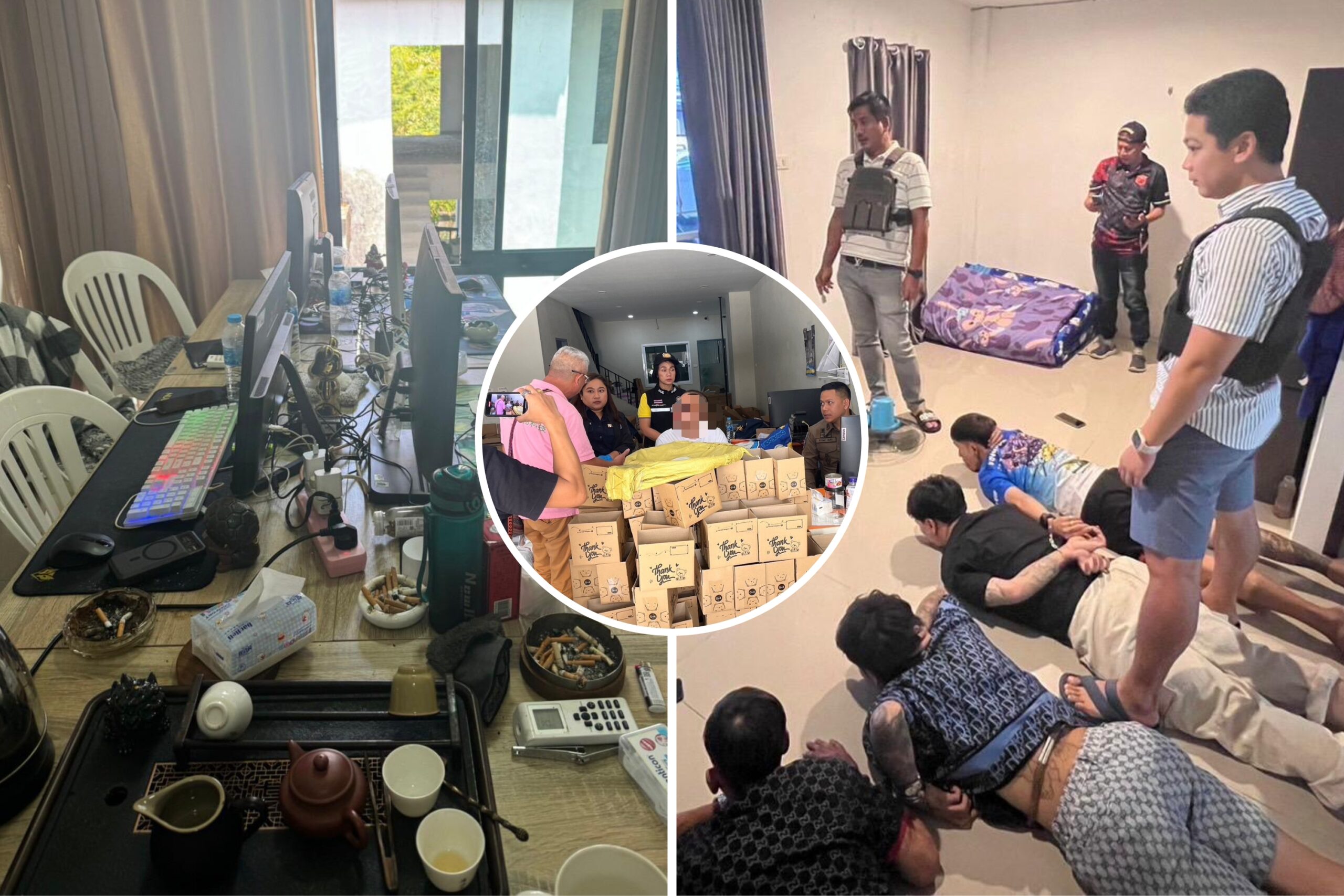“The Chinese gangs taught me how to make my profile look credible, gain followers and post regularly. After finishing my training, I started identifying my victims through social media platforms like Facebook, Instagram and Line,” said Narin, a 20-year-old from northern Thailand.
This wasn’t just an isolated incident but part of a troubling trend. Thailand leads Asia in scam calls and text messaging, with a staggering 78.8 million incidents reported since last year, according to the country’s Office of the National Economic and Social Development Council.
Now, the gangs, often led by Chinese masterminds, are expanding into the U.S. and appear to be ensnaring more Americans.
In 2023, U.S. authorities issued a stark warning about the growing danger of Americans being trafficked into scam syndicates in Southeast Asia. The seriousness of the situation became evident in December 2023, when the Department of Justice announced the indictment of four individuals based in the United States. These individuals were accused of laundering over $80 million in profits from scam operations.
To warn others, Narin, an ex-scammer, told Newsweek about his journey into the dark underbelly of cybercrime. In Thailand, he traveled from Chiang Mai to Chiang Rai before crossing the border into Tachileik, Myanmar. From there, he was transported to Laukkai, a Myanmar border city notorious for call center scams.

Royal Thai Police

Recruited by friends of friends, he trusted them out of desperation for money. But once in Myanmar, he quickly realized the true nature of the operation. Fearful for his safety, Narin felt trapped and couldn’t leave.
Romance Scams
His role in the scam was to identify victims online and incite them to transfer money, which would then be funneled through the operation’s network. Often, Narin pretended to be an officer from Shopee or Lazada, Southeast Asia’s e-commerce giants, to deceive his targets.
This tactic is part of what Thai police officials describe as “romance scams,” in which criminals use fake online identities to gain a victim’s affection before exploiting the person financially.
Thatchai Pitaneelaboot, assistant commissioner general of the Royal Thai Police, told Newsweek, “They try to make you feel like you’re falling in love with them. They use attractive pictures and say things to build your trust. Eventually, they invite you to invest in something.”
These investment scams aim to convince people to invest in various schemes. Narin said that the main victims of such scams are people over 30. Other scams often target women, particularly those who frequently shop online, and young adults between 20 and 25.
“While younger victims might recover financially, elderly victims often face devastating losses that can jeopardize their entire security and well-being,” Jessada Burinsuchat, a cybersecurity expert, told Newsweek. “These cases, though less common, garner significant media attention due to their severe impact.”

Royal Thai Police
One such victim, Buggan, a 60-year-old woman, fell prey to a meticulously orchestrated scam that went on for over a year and a half, one of the longest romance scams. (The full names of the victim and perpetrator have been withheld for safety reasons).
After meeting the scammer on Facebook in 2018, she was drawn into a fabricated story about a lucrative oil pipeline project in Malaysia. The scammer promised her a $1 million payout if she covered a 5.5 million baht ($163,642) cross-border transfer tax. An accomplice, posing as a Thai World Bank representative, further deepened the deception.
Trusting the elaborate scheme, Buggan transferred the money in December 2019. The scammer kept in touch for another month before disappearing, and it wasn’t until January 2020 that she realized the truth and reported the crime.
Chinese Masterminds
In response to the growing problem, Thai and Cambodian authorities have intensified their efforts to clamp down on call center fraud syndicates. Last week, Pitaneelaboot, who is deputy director of Thailand’s Police Cyber Task Force, participated in a joint operation with Cambodian officials.
Pitaneelaboot, who has spent three years combating cybercrime, oversees cyber-related operations across Thailand. He told Newsweek, “The number of cybercrimes is rising because it’s easier and safer than street crime to get money from other people. The spread of social networks is another factor that has made it easier for people to scam others.”
These criminal operations, often led by Chinese masterminds in collaboration with Thai accomplices, have increasingly moved to neighboring countries like Cambodia to evade Thai law enforcement.
“There is a loophole in law enforcement since the scammers stay in another country along the border. It’s not easy to bring them back to Thailand for punishment,” Pitaneelaboot said.

Royal Thai Police
Thai authorities are targeting the phone signals that these gangs use to contact victims in Thailand, focusing on disrupting the connections provided by telecom and mobile network operators, as well as private companies in Thailand that offer internet services.
They are also scrutinizing social media like Facebook and Google, particularly if these platforms are earning money through ads from criminal enterprises. “We may enforce the law on them as well,” Pitaneelaboot said, referring to plans to arrest operators and investigate banks that facilitate fraudulent transactions.
As of now, Thai authorities have issued 165 arrest warrants for gang members in Cambodia, with Cambodian police working to obtain approval from the country’s courts. “We are currently waiting for the court’s decision and hope that the Cambodian court will issue the warrants soon,” Pitaneelaboot said.
After being rescued and returned to Thailand, Narin went through the country’s National Referral Mechanism for victim identification. However, he was not classified as a victim of human trafficking, suggesting that authorities saw him as willingly involved in the fraud from the start.
Taiyawat Vivatkiat, an inquiry official at the Immigration Bureau, told Newsweek, “Scammers are well versed in legal nuances and often exploit human trafficking laws to evade fraud charges. Therefore, the victim identification process must be conducted meticulously to protect the real victims and filter out the scammers who try to exploit the laws.”
Social Media Giants Under Fire
Pitaneelaboot pointed out a troubling aspect of these scams—the complicity, or at least negligence, of social media like Facebook and Google. Criminals use fake profiles and impersonation pages to deceive victims, and despite repeated notifications, the platforms’ responses have been inadequate. Platforms like Line, a popular messaging app, are also used by criminals for transactions, yet they fail to provide useful information or take action against the fraudsters.

Royal Thai Police
“We’ve sent documents to Facebook and Google, but their responses have been inadequate,” Pitaneelaboot said. “Hope they will revise their policies. If necessary, we might issue arrest warrants for executives from companies like Line.”
Newsweek contacted Google and Meta, Facebook’s parent company, for comment via email on Wednesday.
Pitaneelaboot advised the public to stay vigilant, especially when dealing with sponsored ads, which are often used by scammers while legitimate pages typically don’t.
“I believe the expansion of these gangs will be around the world. These gangs can generate significant amounts of money. In fact, the financial gains from these criminal operations might even surpass those from the drug trade,” he said.
‘We Need Stronger Cooperation With U.S.’
Burinsuchat, superintendent of the Royal Thai Police’s cybersecurity investigation unit, has seen an increase in reported cases, many involving personal data leaks. He said even unintentional protection by American and European companies can enable criminal networks.
“Privacy laws, human rights safeguards and technology like Cloudflare often shield these operations from scrutiny,” Burinsuchat said.
Despite efforts to combat these networks, cracking down on them remains a formidable task. The operations are intricate, with layers of management, scam centers and money laundering systems.
Even when authorities manage to arrest key figures, replacements quickly fill the void. The masterminds often operate from neighboring countries, making it difficult for Thai authorities to reach them. This limits many investigations to smaller players, such as asset converters and account holders.
A rare success story came with the arrest of a Chinese syndicate leader, with strong private sector cooperation. Authorities traced the network back to this figure, recovering assets worth about a billion baht.
Burinsuchat stresses the need for Big Tech companies to step up to protect vulnerable people in countries in the Association of Southeast Asian Nations.
“We need stronger international cooperation with agencies in the USA, China and tech companies to identify and dismantle these scam centers,” he said.
👇Follow more 👇
👉 bdphone.com
👉 ultraactivation.com
👉 trainingreferral.com
👉 shaplafood.com
👉 bangladeshi.help
👉 www.forexdhaka.com
👉 uncommunication.com
👉 ultra-sim.com
👉 forexdhaka.com
👉 ultrafxfund.com
👉 ultractivation.com
👉 bdphoneonline.com




